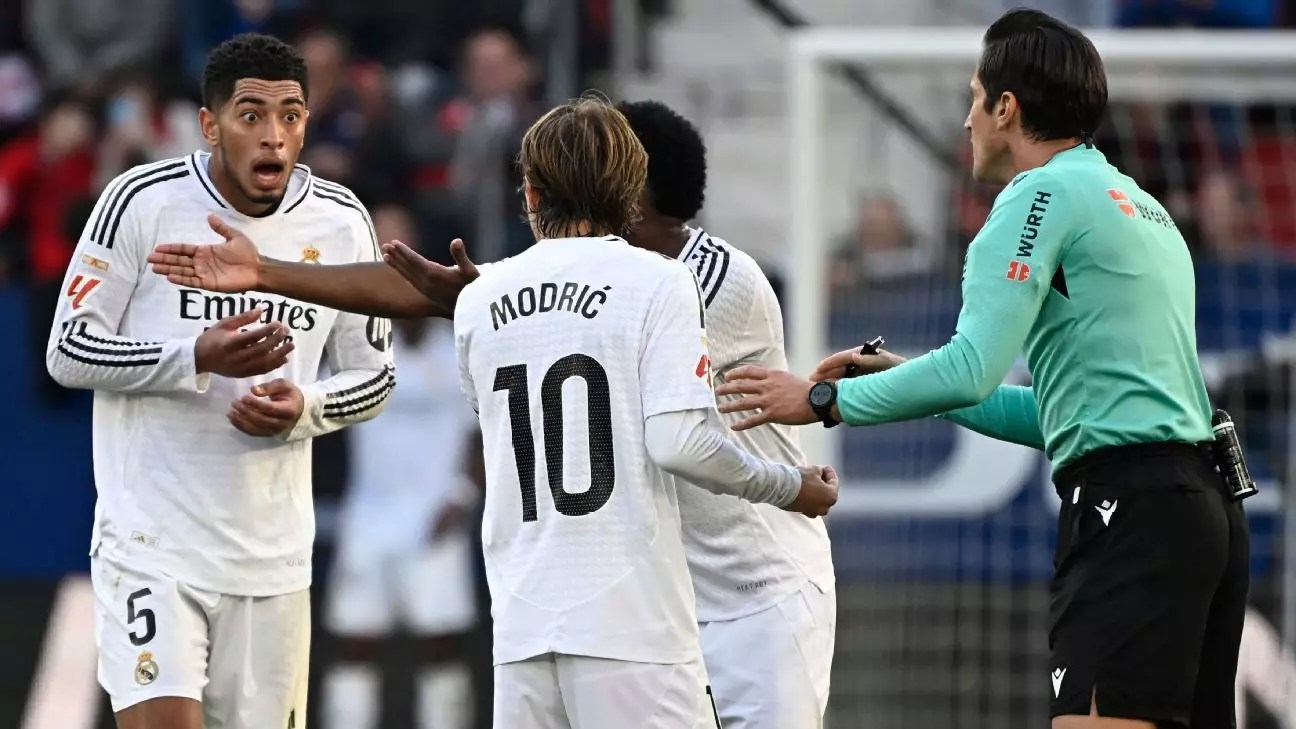In a recent La Liga clash between Real Madrid and Osasuna, a notable incident unfolded that led to the dismissal of Jude Bellingham, a promising English midfielder, during the first half. The 40th-minute red card issued by referee José Luis Munuera created waves of discussion surrounding the circumstances leading to this moment. As tensions mounted on the pitch amid disputable officiating decisions, Bellingham’s verbal exchange with Munuera became the centerpiece of the controversy. Detractors highlighted the referee’s authority while supporters called for clarity around player grievances, indicating an urgent need for precision in communication during high-stakes matches.
Post-match interviews revealed contrasting interpretations of what transpired. Bellingham expressed his belief that there was a significant miscommunication: “I remember the incident very well but also I’ve seen the video. The video doesn’t match the [referee’s] report.” He asserted that the nature of his comments was misinterpreted, potentially leading to a misunderstanding that changed the game’s dynamics. Bellingham emphasized that his intent was never to put his team in a difficult position, reinforcing his desire for a fair reassessment of the situation based on video evidence.
In stark alignment with the player’s perspective, Real Madrid’s head coach Carlo Ancelotti offered his insight by stating that Munuera may not have fully grasped the nuances of English. Ancelotti’s analysis touted the potential discrepancies between languages as a breeding ground for miscommunication, suggesting that Bellingham’s phrase, widely perceived as offensive, may have been misconstrued. Ancelotti’s remarks brought attention to the need for referees to be more culturally aware, underscoring the complexities of officiating in a diverse league environment.
This incident raises questions about the current standards of refereeing in professional football. The misinterpretation not only impacted the specific match but also casts doubt on the consistency and accuracy of officiating across the board. The call for referees to be equipped with a more robust understanding of players’ languages and cultural expressions is crucial, particularly at elite levels where the stakes are remarkably high.
Furthermore, Bellingham’s plea for video evidence to be considered more transparently highlights a growing demand for technological advancements in officiating. As football evolves, the incorporation of technology to provide clarity in contentious situations could pave the way for significant enhancements in game management.
The red card incident involving Jude Bellingham serves as a crucial case study for football officials and stakeholders. It underscores the importance of clear communication and cultural sensitivity among referees, as well as the necessity for modern technology in addressing disputes effectively. As voices from both the team and the coaching staff advocate for change, it is evident that this moment can catalyze a dialogue that leads to improvements in the officiating landscape—ultimately fostering a fairer and more understanding atmosphere in the beautiful game.


Leave a Reply